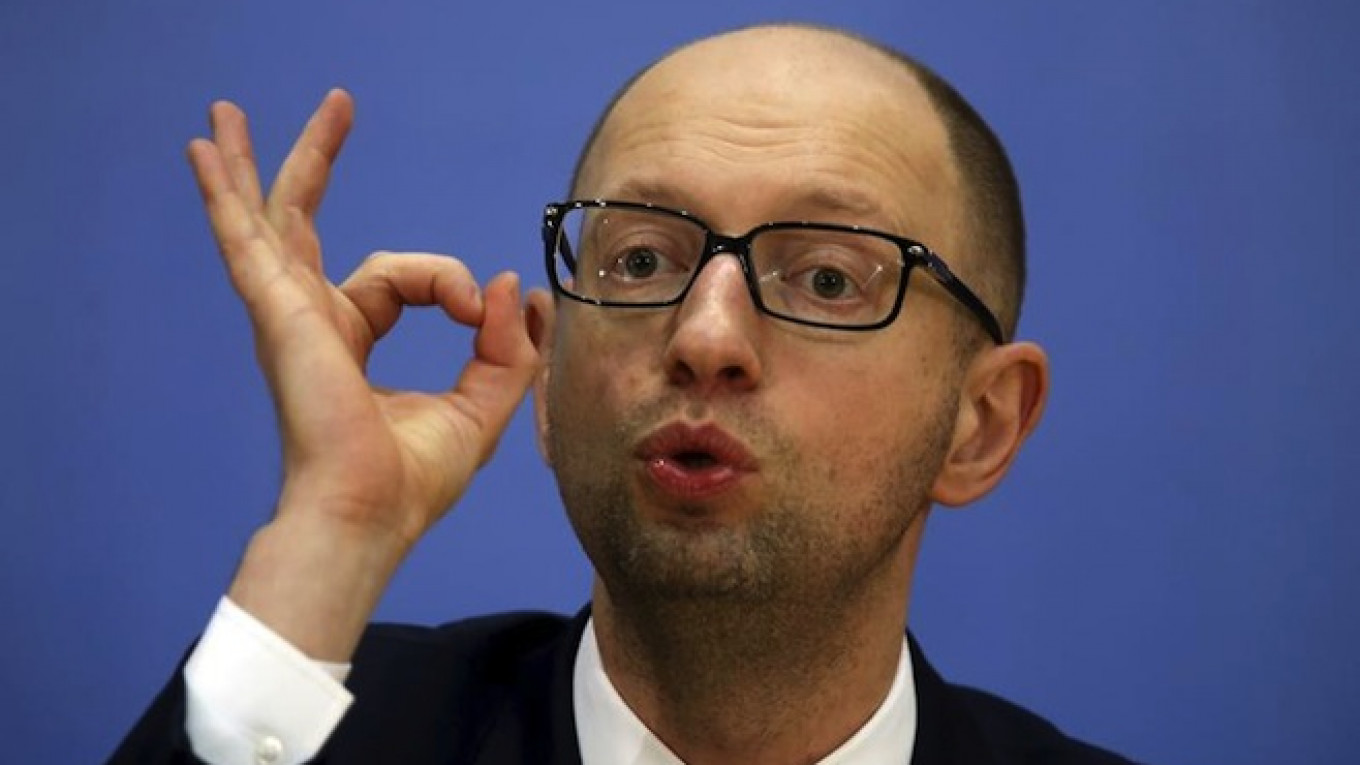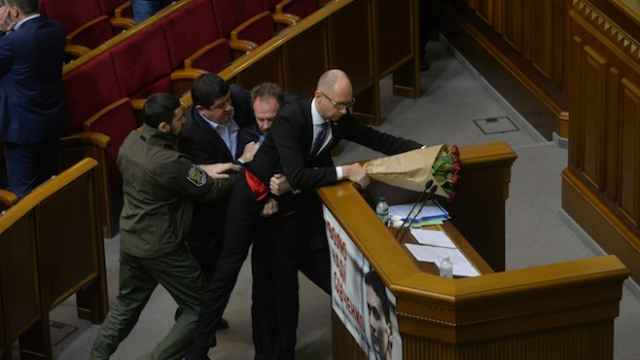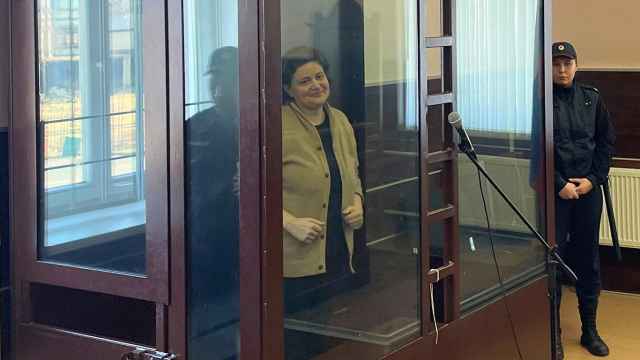Ukrainian Prime Minister Arseniy Yatsenyuk on Sunday announced his resignation, blaming an “artificially created” political crisis and politicians' failure to enact “real changes.”
Yatsenyuk, who narrowly survived a vote of no-confidence in parliament earlier this year, said his resignation will be presented to the legislature on Tuesday.
Announcing his resignation on national television, and the social networks Facebook and Twitter, Yatsenyuk called for a new government to be selected immediately to avoid the “destabilization of the executive branch during a war.” Russian-backed separatist insurgents have been battling Kiev government forces in eastern Ukraine for nearly two years.
As Ukraine is going through a deepening political crisis, with dwindling public trust in government officials, Yatsenyuk said on Facebook that the “political crisis in the country was created artificially.”
“The desire to change one person blinded politicians and paralyzed their political will for real change,” he said. “The process of changing the government turned into a mindless running in place.”
Ukrainian President Petro Poroshenko, who had sought Yatsenyuk's resignation in February, indicated Sunday he would like to see parliament speaker Volodymyr Groysman as prime minister.
Another candidate for the job is Ukraine's U.S.-born Finance Minister Natalie Jaresko, Poroshenko added in televised remarks cited by the country's news agencies.
Yatsenyuk has been in office since pro-European protesters toppled Moscow-backed former-President Viktor Yanukovych two years ago. He called his new Cabinet a group of “political kamikazes,” predicting they would be blamed for impeding economic grievances in a country deep in debt and with “empty coffers.”
Since then, Russia annexed the Crimean Peninsula from Ukraine, a separatist insurgency broke out in the east, critics have been increasingly accusing Yatsenyuk and other government leaders of links to corruption, and the International Monetary Fund has threatened to withhold bailout money unless Ukraine implements reforms.
Calling for Yatsenyuk to resign in February, Poroshenko said the government needed a “total reboot” and “reformatting” to regain public trust. A no-confidence vote in parliament shortly afterward garnered 194 votes, falling short of the 226 needed to pass.
But Ukraine's ruling coalition continued to unravel, when the Fatherland Party — led by former-Prime Minister Yulia Tymoshenko — left the bloc a day after the failed no-confidence vote.
“As of today,” Yatsenyuk tweeted on Sunday “my goals are broader: new electoral law, constitutional reform, judicial reform, Ukraine’s membership in the EU and NATO.”
Ukraine's plans for closer ties with the European Union — an ambition that Russia has been trying to block for years — suffered a setback when voters in the Netherlands opposed a trade deal between the EU and Ukraine by an almost two-to-one vote in a referendum on April 6.
But the European Commission plans to propose granting visa-free travel to Ukrainians, despite the Dutch referendum, Reuters reported Sunday, citing an unidentified senior EU official.
“It may look as if we're ignoring the Dutch voters, but we have to keep our word to Ukraine, which has met the conditions,” the official was quoted as saying. The proposal will be introduced this month, the official said, Reuters reported.
Contact the author at newsreporter@imedia.ru
A Message from The Moscow Times:
Dear readers,
We are facing unprecedented challenges. Russia's Prosecutor General's Office has designated The Moscow Times as an "undesirable" organization, criminalizing our work and putting our staff at risk of prosecution. This follows our earlier unjust labeling as a "foreign agent."
These actions are direct attempts to silence independent journalism in Russia. The authorities claim our work "discredits the decisions of the Russian leadership." We see things differently: we strive to provide accurate, unbiased reporting on Russia.
We, the journalists of The Moscow Times, refuse to be silenced. But to continue our work, we need your help.
Your support, no matter how small, makes a world of difference. If you can, please support us monthly starting from just $2. It's quick to set up, and every contribution makes a significant impact.
By supporting The Moscow Times, you're defending open, independent journalism in the face of repression. Thank you for standing with us.
Remind me later.






